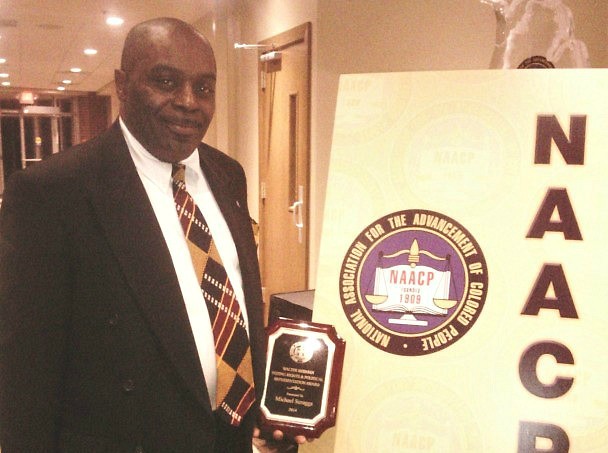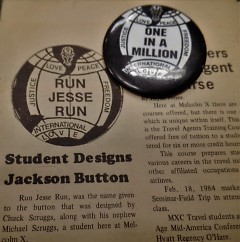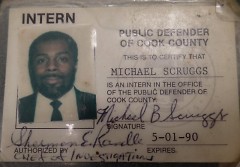This November, Kent County voters will elect a Sheriff. Though the municipal police departments have jurisdiction over patrolling and policing functions within city limits, the Sheriff oversees the security of the county courts and the correctional facility, which affects city residents who are charged, tried, or sentenced.
Michael Scruggs and a historical perspective
Michael Scruggs, the Democratic candidate for Kent County Sheriff, takes a historical perspective on the role of the Sheriff’s role. “I’m running for Sheriff, and it’s a delicate position. When we look back at the history of a Sheriff, the Sheriff’s job is to keep the peace,” he said in an interview on October 10, 2016. “That has changed over the years.”
Scruggs was invited to join the 2016 election by the Kent County Democratic Party, which endorses his candidacy.
Experience
Scruggs holds degrees in Public Administration and in Corrections and Criminal Justice. He served as President of the Malcolm X College Law club and served an internship with the Cook County Public Defender’s office, gaining experience with high-profile murder cases. He once led classes in security and investigation for Allied Institute.
Raised in Chicago and involved with the political scene since he was young, Scruggs worked with Jesse Jackson’s 1984 presidential campaign and local campaigns. When he moved to Grand Rapids in the year 2000, he jumped into social justice work. Scruggs served on the board of the Kent County Department of Health Services from 2005-2008, during which he lobbied the State legislature for the funding for the new DHS building on Jefferson. He led the West Michigan office of Clean Water Action in 2008, then served for six years as chair of the Kent County Black Caucus, working to represent African-American voices on issues of local government.
Scruggs is honest that he has “very little experience in law enforcement. I will form a blue-ribbon committee that includes those from law enforcement. I can draw on the experience of others who are already very good at their jobs." What he does have is a new perspective on the role of Sheriff.
The issue of race and racial history in this election
In discussing race and the role of Sheriff’s office, Scruggs outlined his historical understanding. “When I look back at history…after slavery, there were those individuals who felt that African Americans needed to be controlled. That role fell to the police force, moving into the 20th century and the Jim Crow era.”
“And it wasn’t only during Jim Crow, but even during the passing of the Civil Right Acts and the Voting Rights Act [of the 1960s]," Scruggs said. “[President] Lyndon Johnson did what he could, and passed the legislation. But the police became the vanguard [the foremost part] in controlling African Americans, for those who felt they had to bring some control.”
“In the 1970s, African Americans were starting to thrive - owning their own businesses, traveling the country freely. And some thought they shouldn’t be doing that. Nixon’s [policies] set the tone for Reagan in the early 1980s and the war on drugs, which was the next level of containment. There was a double standard. A white guy caught with powder cocaine might be given six months, while those with crack cocaine [which affects African American communities] would be given six years, a minimum sentence.”
“Over time,” Scruggs said, “the Sheriff and police moved from the work of keeping the peace, to being the vanguard in controlling the masses, to being the gatekeepers-controlling who gets in and who gets out of the prison system. The drugs and the incarceration, these destroyed families, destroyed communities. We’d had individuals that were prospering. As a country, we could have really grown. We could have grown together.”
“But continuing from the 1980s to today,” Scruggs said, “we are still dealing with racism. And we shouldn’t have to be. We’re all the same. We love our God, we love our children, we want to raise our children as best we can. We all love this country; we work to build this country.”
In the next part of this series, Mr. Scruggs shares how he hopes to move the Sheriff’s office forward out of this historical context.
The Rapidian, a program of the 501(c)3 nonprofit Community Media Center, relies on the community’s support to help cover the cost of training reporters and publishing content.
We need your help.
If each of our readers and content creators who values this community platform help support its creation and maintenance, The Rapidian can continue to educate and facilitate a conversation around issues for years to come.
Please support The Rapidian and make a contribution today.



